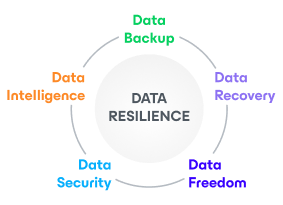Kubernetes adoption continues to increase and is widespread across various industries and sectors, from small startups to large enterprises. It’s also supported by all major cloud providers, including Amazon Web Services, Microsoft Azure and Google Cloud Platform. Kubernetes has a vibrant open-source community. With over 2,000 contributors and more than 71,000 GitHub stars, the community is constantly improving and expanding the capabilities of the platform, making it more accessible and easier to use for organizations of all sizes.
However, while Kubernetes has become more accessible over the years with the development of user-friendly tools and interfaces, it still has a steep learning curve. Today, experience levels vary widely from organization to organization. Some businesses may have dedicated teams or individuals who are responsible for managing their Kubernetes clusters, while others may be experimenting with it on a smaller scale.
In this post, we’ll look at what Advanced Kubernetes really means and what it may take developers to get there. We’ll also look at a few great examples from Forrester’s 2023 report, Kubernetes: Your Innovation Platform, for advanced Kubernetes usage that is helping organizations like Mercedes-Benz, Bloomberg, and GE Healthcare create innovative solutions to solve challenging problems.
What’s Possible with Kubernetes?
Early applications of Kubernetes were aimed at getting things done quicker and cheaper, and containing infrastructure costs over time was a key goal. Money saved in developing simple applications could be reallocated to more strategic projects. But with more time on developer hands and more experience with the platform, innovation is now the focus.
Consider the following Kubernetes success stories that we have summarized from the “Forrester Report:,”
- An early adopter of Kubernetes, Mercedes-Benz expanded its use of the platform into a proprietary solution and shared it with the open-source community. Soon it ranked among the top 20 companies contributing to Kubernetes. The company continues to play an important role in the Cluster API subproject, which aims to simplify working with multi-cluster Kubernetes environments.
- Bloomberg, a provider of financial information, used Kubernetes to transform and shorten the development lifecycle for AI models. Kubernetes provides enough compute power for building models with fragmented and rapidly changing data, along with custom resource definitions (CRDs) that enables the company’s machine learning platform to detect security sales offers, classify intent, disentangle threads, and then summarize the findings
- GE Healthcare uses Kubernetes to run devices remotely, overcoming complex installations and unreliable connectivity, while providing a single source of truth for device state data. Leveraging Spectro Cloud, the company’s Kubernetes-based fleet management system enables them to manage VMS and IoT devices for local compute and storage, so developers can focus on modernization efforts while continuing to support their legacy apps.
How to Advance Your Kubernetes Knowledge
Because it’s a complex system that requires a certain level of technical expertise and knowledge to use effectively, taking Kubernetes usage to a more advanced level requires experience and training.
There are several ways to increase your Kubernetes skillset, depending on your level of expertise and preferred learning style:
- Kubernetes documentation: The Kubernetes documentation is an excellent resource for learning about Kubernetes and its various components. It provides a comprehensive guide to installing, configuring, and using Kubernetes, along with detailed explanations of its architecture and features.
- Community resources: The Kubernetes community is active and supportive, with many resources available for learning and collaboration. The Slack channel is a great place to ask questions and get help from other users, while the Kubernetes forums and GitHub repository are also useful resources for finding information and contributing to the project.
- Practice with a test cluster: Setting up a test Kubernetes cluster can be a great way to get hands-on experience with the technology. Tools like Minikube and Kind make it easy to spin up a local cluster for testing and experimentation.
- Attend conferences: Attending Kubernetes conferences such as KubeCon + Cloud NativeCon and WeAreDevelopers World can be a great way to network with other users and learn about the latest developments in the technology.
Try a few of these methods out and see how it helps you build your Kubernetes knowledge and capabilities. In the meantime, you can access the recent Vision Report from Forrester, “Kubernetes: Your Innovation Platform,” to learn the benefits of Kubernetes and why Kubernetes is different from other container orchestration platforms. The report also contains numerous examples of Kubernetes-driven innovation that you will find inspiring!
And while you’re innovating, don’t forget how important it is to back up and protect your data and applications. Kasten K10 is the premier solution for reliable Kubernetes backup and recovery. Try it for free today!

